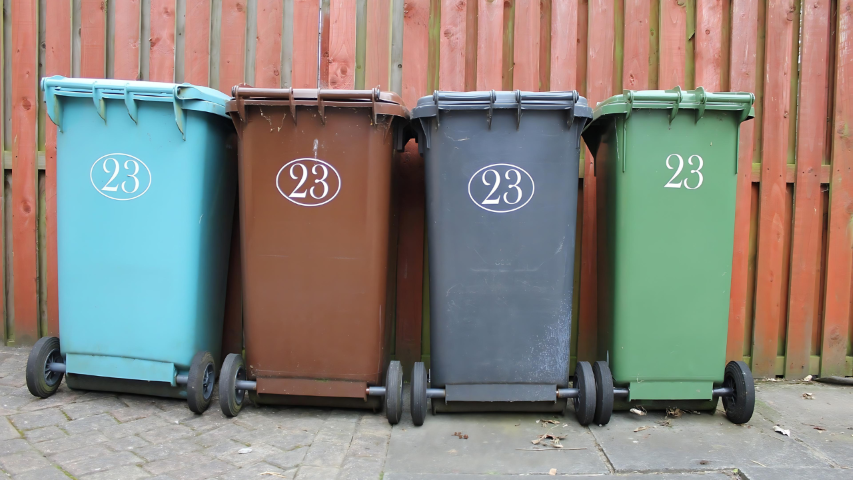

Moving to a foreign country may be thrilling as well as worrisome. One crucial yet often overlooked aspect of settling into a new place like Canada is understanding how to manage waste effectively. Canada has a well-organized waste management system that emphasizes recycling and proper disposal.
For newcomers, navigating this system can be challenging, but essential for contributing to environmental sustainability. This blog will walk you through the key recycling and disposal tips that will help you integrate seamlessly into Canada's waste management practices.
Effective waste management begins at home, and understanding how to sort your waste correctly is fundamental in Canada. The country typically employs a multi-bin system, which includes a green bin, a blue bin, and a black bin. Each bin serves a specific purpose and helps in separating waste types for proper processing.
Green Bin – Organic and Food Waste
The green bin is dedicated to organic waste, which includes food scraps and other biodegradable materials. Here's what you can dispose of in the green bin:
By sorting your organic waste into the green bin, you contribute to the production of compost, which is used in agriculture and gardening, reducing the overall waste sent to landfills.
Blue Bin – Recycling
The blue bin is for recyclable materials, which can be repurposed into new products, reducing the need for raw materials. Items that belong in the blue bin include:
Proper recycling not only conserves resources but also decreases pollution by reducing the need for raw material extraction.
Black Bin – Garbage
The black bin is for non-recyclable and non-compostable waste. Items that belong here are:
Using the black bin correctly ensures that non-recyclable waste is safely disposed of without contaminating recyclables or compostable.
Certain types of waste require special handling due to their nature or environmental impact. Understanding how to manage these can prevent improper disposal and potential harm to the environment.
Yard Waste
In many Canadian municipalities, yard waste is collected separately and turned into mulch or compost. Yard waste includes:
Proper disposal of yard waste keeps it out of landfills and contributes to green energy and soil enrichment initiatives.
Cooking Grease
Disposing of cooking grease improperly can lead to clogged drains and environmental contamination. Instead:
By managing cooking grease responsibly, you help maintain your local plumbing systems and prevent pollution.
Pet Waste and Hair
Pet waste and hair require careful disposal due to their potential to carry pathogens. Here's what to do:
Responsible disposal of pet waste helps reduce environmental contamination and keeps public spaces clean.
Oversized Items
Large items such as furniture, appliances, and mattresses cannot be placed in regular bins. To dispose of these:
Handling oversized items correctly ensures they are disposed of or repurposed in an environmentally friendly manner.
While managing waste is a civic duty, there are legal and safety considerations to keep in mind:
Navigating Canada's waste management system may seem daunting at first, but with a little effort and knowledge, it becomes second nature. By sorting your waste correctly, handling specific types of waste responsibly, and understanding the legal aspects, you contribute to a cleaner, greener environment. As newcomers, embracing these practices not only helps you settle in but also demonstrates your commitment to sustainability in your new home.
Waste management is more than just a routine; it's a crucial part of being a responsible resident. Whether you're dealing with everyday household waste or specific items like cooking grease or pet waste, following these guidelines will help you make a positive impact.
Remember, every small step towards proper waste disposal is a big step towards protecting Canada's beautiful landscapes for future generations.
Having an 'Identity Verified' badge or being 'Identity Verified' simply indicates that an individual has submitted information to complete our identity verification process or we have conducted internal verification using various authorized websites. While this process includes safeguards, it does not guarantee that the person is who they claim to be.
If you encounter any issues with this profile, please report them here. While all consultants who are verified have RCIC ID, we may not have the latest data in terms of their renewal/cancellation/discontinuation of their RCIC ID.
The "Verified Consultants" profiles are created using publicly available information, including data from the IRCC website, official consultant sites, other listing platforms, and social media. Immiperts.com is an independent platform, not affiliated with IRCC or any registered immigration consultants. To update, claim, or remove your profile, please contact us at [email protected].
╳